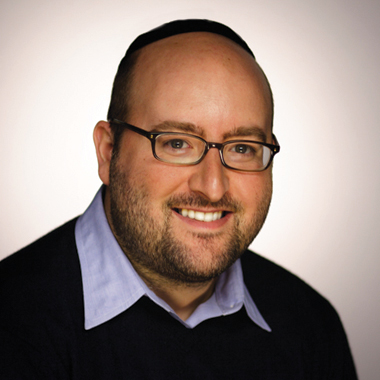There are certain Shabbats that are given a name, and the Shabbat of the portion Va’etchanan is one of them. Often these names refer to the Torah reading for that portion; the Shabbat of Va’etchanan, called Shabbat Nachamu, however, relates to its Haftorah portion, from the reading of the Prophet Isaiah. The name is taken from the opening words, Nachamu, nachamu ami, “Comfort, comfort My people.”
"What is Isaiah saying when he states that people are dry?"
Isaiah says in his prophecy that people are dry, and that even the kindnesses that are done in this world are like dry weeds that grow. Rav Ashlag and Rav Brandwein point out, and the Zohar explains, that this is really the secret of the barrier between the world as we know it today, with the pain, suffering, and death that exists, and the way it should be. But, what does that mean? What, the Zohar asks, is Isaiah saying when he states that people are dry and their kindness, their actions of sharing, are dry?
To explain this, the Zohar goes into great depths, but there is one section I want to share. In his book The Thought of Creation, Rav Ashlag writes, quoting from this part of the Zohar, that when it says people are dry and their kindness is dry, it means that when people do a kindness they do it for their own personal benefit, whether physical or spiritual. And the Zohar is telling us, Rav Ashlag says, that in order to bring the change to this world that we desire to bring, and that the Creator desires for us to bring, we have to shift that. We need to think about our own kindness, and answer honestly: when we share or give, how much of it is pure? How much of it is only for the purpose of revealing the Light of the Creator in this world, without any desire for personal benefit?
"When we share or give, how much of it is pure?"
In Kabbalah, yes, we learn that doing an action of sharing can bring us blessings, and it’s important to do them. But that’s not the ultimate consciousness. Are 20% or 30% of our actions of kindness pure? Are they solely for the purpose of revealing the Light of the Creator in this world, without any desire for personal blessings and benefit? As long as they are not, the prophecy of Isaiah is still true; people remain dry, and the kindnesses, the actions of sharing, don’t have the power that they’re meant to have. And it says that as long as that’s the case, we cannot draw down and hold onto the Light of the End of the Correction.
The Light is available to every one of us on Shabbat Nachamu, the Shabbat of the portion Va’etchanan, to become a person who truly shares without desiring to receive any personal benefit from it. That’s the Light that is available on Shabbat Nachamu, and that shift, as the Zohar tells us, is what will enable the beginning of manifesting Isaiah’s prophecy, Nachamu nachamu ami, “Comfort, comfort My people,” where all the pain, tears, and death that ever existed are removed from our world. If we ask for it on this Shabbat, we can begin moving in that direction.
